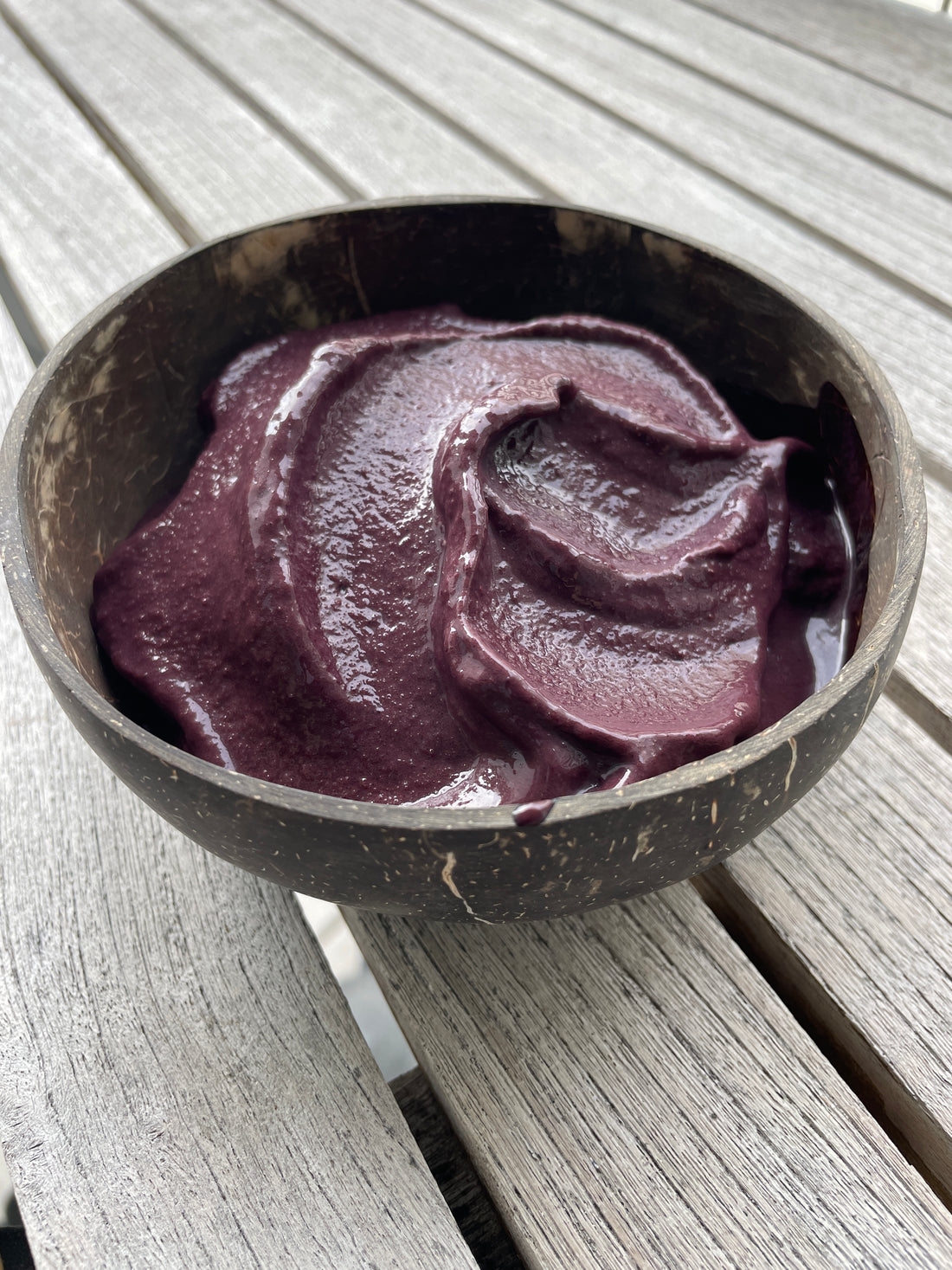In a world where chronic inflammation lurks as a silent precursor to numerous diseases, the quest for natural remedies to combat this insidious condition has intensified. Enter the acai berry, a small but mighty fruit native to the Amazon rainforest, celebrated for its remarkable anti-inflammatory properties. In recent years, scientific interest in the acai berry has surged, driven by its potential to alleviate inflammation and promote overall health. In this comprehensive exploration, we delve into the research supporting the acai berry's role as a potent anti-inflammatory agent, while unraveling the intricate relationship between inflammation and disease.
Understanding Inflammation: The Root of Disease
Before delving into the therapeutic potential of the acai berry, it's crucial to grasp the concept of inflammation and its profound implications for health. Inflammation is the body's natural response to injury, infection, or irritation, characterized by redness, swelling, heat, and pain. While acute inflammation serves as a protective mechanism to eliminate harmful stimuli and initiate the healing process, chronic inflammation represents a persistent state of immune system activation.
Chronic inflammation lies at the heart of many debilitating conditions, including cardiovascular disease, diabetes, cancer, autoimmune disorders, and neurodegenerative diseases. The relentless assault of inflammatory mediators wreaks havoc on tissues and organs, fostering a conducive environment for disease progression. Hence, interventions aimed at quelling chronic inflammation hold immense therapeutic promise in safeguarding against a spectrum of ailments.
Acai Berry: Nature's Anti-Inflammatory Elixir
Nestled deep within the lush Amazon rainforest, the acai palm (Euterpe oleracea) bears clusters of dark purple berries renowned for their rich antioxidant content and health-promoting properties. Traditionally cherished by indigenous tribes for centuries, the acai berry has garnered global attention as a superfood with exceptional nutritional and medicinal value. Central to its acclaim is its potent anti-inflammatory prowess, which emerges from a synergistic interplay of bioactive compounds.
Polyphenols: Guardians of Inflammation
At the forefront of the acai berry's anti-inflammatory arsenal are polyphenols, a diverse group of phytochemicals revered for their antioxidant and anti-inflammatory properties. Among these, anthocyanins, flavonoids, and phenolic acids reign supreme, orchestrating a multifaceted defense against inflammatory insults. Research indicates that these bioactive compounds exert their anti-inflammatory effects by modulating key signaling pathways involved in inflammation, such as NF-κB and MAPK pathways, and suppressing the production of pro-inflammatory cytokines.
A study published in the Journal of Agricultural and Food Chemistry demonstrated the potent anti-inflammatory activity of acai polyphenols, attributing their efficacy to the inhibition of pro-inflammatory enzymes and the attenuation of oxidative stress. Furthermore, a systematic review and meta-analysis encompassing multiple clinical trials corroborated the anti-inflammatory benefits of polyphenol-rich foods, including the acai berry, in reducing markers of inflammation and improving overall health outcomes.
Omega Fatty Acids: Balancing Inflammatory Responses
In addition to its polyphenol content, the acai berry boasts a favorable omega fatty acid profile, particularly omega-3 and omega-6 fatty acids, which play pivotal roles in modulating inflammation and immune function. While omega-6 fatty acids are precursors to pro-inflammatory eicosanoids, omega-3 fatty acids, notably eicosapentaenoic acid (EPA) and docosahexaenoic acid (DHA), exert anti-inflammatory effects by competing with omega-6 fatty acids for enzymatic conversion and producing less inflammatory mediators.
Emerging evidence suggests that the omega fatty acids present in acai berries may contribute to their anti-inflammatory properties by rebalancing the omega-3 to omega-6 ratio and mitigating excessive inflammation. A randomized controlled trial published in the Journal of Nutrition reported that supplementation with omega-3 fatty acids led to significant reductions in inflammatory biomarkers, underscoring the therapeutic potential of dietary interventions rich in these essential fatty acids.
Harnessing the Power of Acai: Implications for Health and Wellness
The burgeoning body of research extolling the anti-inflammatory virtues of the acai berry holds profound implications for health and wellness. Incorporating acai berries or their derivatives into the diet may offer a natural and effective strategy for mitigating chronic inflammation and thwarting the onset and progression of inflammatory diseases. Whether consumed fresh, frozen, or in concentrated forms such as juices, extracts, or supplements, the bioactive constituents of acai berries hold promise as adjunctive therapies or preventive measures against a myriad of inflammatory conditions.
Culinary Delight and Nutritional Bounty
Beyond its therapeutic potential, the acai berry tantalizes the taste buds with its delectable flavor profile, reminiscent of a blend between berries and chocolate. From smoothie bowls and fruit salads to antioxidant-rich desserts and beverages, the culinary versatility of acai lends itself to a plethora of palate-pleasing creations. Moreover, its nutrient-rich composition, brimming with vitamins, minerals, fiber, and beneficial phytochemicals, confers a myriad of health benefits beyond inflammation modulation, including cardiovascular protection, cognitive enhancement, and immune support.
Conclusion: Embracing Nature's Remedy
In conclusion, the acai berry emerges as a formidable ally in the battle against chronic inflammation, offering a holistic approach to health and wellness rooted in nature's bounty. Backed by scientific research elucidating its potent anti-inflammatory properties, the acai berry stands poised as a beacon of hope in an era plagued by inflammatory diseases. By harnessing the therapeutic potential of this Amazonian superfood, individuals can embark on a journey towards vitality, resilience, and longevity, empowered by the healing embrace of nature's remedy.
As we navigate the complexities of modern living, let us not overlook the wisdom encoded within the vibrant hues of the acai berry, beckoning us to embrace its nourishing embrace and unlock the secrets to optimal health and vitality. In a world beset by inflammation-induced maladies, the acai berry serves as a poignant reminder of nature's enduring resilience and capacity to heal, offering a beacon of hope amidst the tumult of chronic disease.
References:
1. Xie C, Kang J, Li Z, et al. Açaí berry extract attenuates inflammatory cytokine production in human monocytes via suppression of nuclear factor-κB and mitogen-activated protein kinase signaling pathways. Journal of Agricultural and Food Chemistry. 2011;59(8): 4475-4483.
2. Serpeloni JM, Barcelos GRM, Friedemann MT, et al. Anti-inflammatory and antioxidant effects of anthocyanins-rich extract from açai (Euterpe oleracea Mart.) in an in vitro model of atherosclerosis. BMC Complementary and Alternative Medicine. 2014;14:391.
3. Calder PC. Omega-3 fatty acids and inflammatory processes: from molecules to man. Biochemical Society Transactions. 2017;45(5):1105-1115.
4. Kris-Etherton PM, Harris WS, Appel LJ, et al. Omega-3 fatty acids and cardiovascular disease: new recommendations from the American Heart Association. Arteriosclerosis, Thrombosis, and Vascular Biology. 2003;23(2):151-152.
By embracing the therapeutic potential of the acai berry, we can embark on a journey towards vitality, resilience, and longevity, empowered by the healing embrace of nature's remedy.

